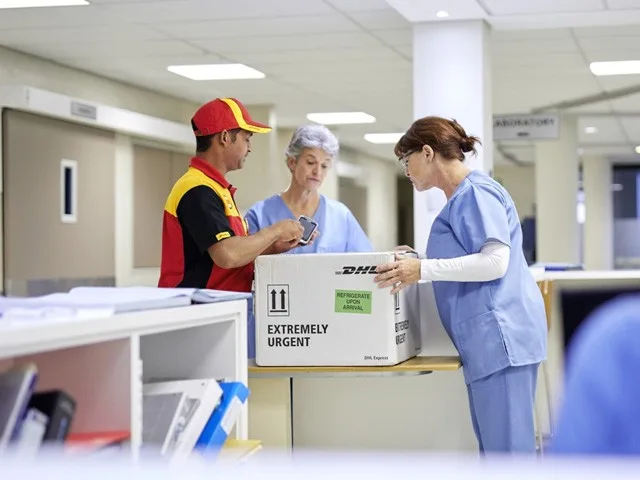
6 Tips for Hong Kong Imports and Exports Electronic Customs Clearance Process
The success of international trade heavily relies on the smooth execution of the customs clearance processes. For businesses engaged in Hong Kong imports and exports or global trade, navigating the complexities of electronic customs regulations is a critical step towards ensuring fast, uninterrupted delivery of goods across borders. Yet, this crucial phase can be laden with potential setbacks and delays, significantly affecting operational timelines and efficiency. In this blog, we explore some of the best practices to avoid shipping delays, especially when it involves international shipping.
1. Fill in accurate import and export customs declaration documents
At the heart of a smooth customs clearance process is the accuracy and completeness of the declaration documents. Inaccurate or incomplete customs clearance documents can lead to significant hold-ups, causing delays, additional customs clearance charges, and even penalties. Some of the essential documents typically include a detailed invoice, packing list, Bill of Lading/Air Waybill, and any specific customs clearance certificates required for the goods being shipped. Ensuring these documents are accurately filled and readily available is the first step in avoiding unnecessary delays.
2. Goods classification and valuation in the electronic customs clearance process
Correctly classifying goods for customs purposes, especially in the electronic customs clearance procedure, is not just a regulatory requirement; it's a strategic necessity. The classification determines the applicable tariffs and duties, while accurate valuation is essential to avoid disputes and further scrutiny. Businesses must familiarise themselves with the Harmonized System (HS) codes and ensure their goods are classified correctly. Here’s how you can ensure you're using the right HS code:
- Use detailed product descriptions: Begin by having a detailed and accurate description of your product. The more precise your description, the easier it will be to correctly classify your goods. Include details such as what the product is made of, its purpose, and how it is used.
- Check with suppliers or manufacturers: If you're importing goods, your supplier or manufacturer might already have the correct HS code, especially if they frequently export products. Always verify their provided codes to ensure accuracy.<
- Use DHL Express’ My Global Trade Services (MyGTS): MyGTS is an intuitive, all-in-one portal that leverages advanced AI technology to automate and accurately determine the HS codes for your international shipments.
This attention to detail in classification and valuation can streamline the customs clearance procedure, averting potential hold-ups.
3. Regulatory compliance
The landscape for import and export customs clearance regulations is ever-changing, with policies and procedures constantly updated. Compliance is not just an obligation, it's a critical component of international logistics. Businesses must remain informed about the latest electronic customs clearance processes, especially when handling import customs clearance in Hong Kong and other significant hubs. Ensuring that submitted declaration documents and data are accurate is vital. Regular training for staff and consultations with customs experts can help ensure compliance and reduce the risk of clearance delays.

4. Packaging and labelling: Key to the customs clearance process
Proper packaging and labelling are about more than just aesthetics; they're about compliance and efficiency in the declaration process. Especially in modern electronic customs procedures, authorities rely heavily on clear, accurate labels to process shipments quickly. These labels are a crucial source of customs clearance information, including precise descriptions of contents, country of origin, and any handling instructions. Additionally, secure packaging ensures that goods are not damaged during inspections, further avoiding delays.
5. Transparent communication
Open and proactive communication with customs authorities can significantly mitigate the risk of import and export customs declaration delays. In instances of clearance delay, being forthcoming with all necessary customs clearance documents, information and responsive to inquiries can help resolve issues more swiftly. Establishing a rapport with customs officials can also provide valuable insights into the process and help anticipate potential roadblocks.
6. Partnering with a reliable logistics provider offering electonic customs service
The complexities of the declaration process highlight the importance of partnering with a reliable logistics provider. A provider like DHL Express, with its extensive experience in international logistics and electronic customs process, can be a game-changer. DHL's expertise in handling customs regulations across various countries ensures that shipments comply with all legal requirements, thereby minimising the risk of delays and enhancing the efficiency of the customs clearance process.
DHL Express Hong Kong offers a range of customs services, including Export Declarations, Bonded Transit, and Multiline Entry. Services like Bonded Storage, Clearance Processing, and Duty Tax Processing are also available, facilitating seamless international shipments. Partner with DHL to leverage their extensive network and streamline your Hong Kong imports and exports operations, making your international trade smoother and more efficient.

Enhance shipping efficiency with DHL Express
Adopting these customs clearance process best practices can significantly diminish the chances of encountering delays, allowing businesses to maintain smooth operations and fulfill delivery promises. Partnering with an experienced logistics provider like DHL Express Hong Kong, especially by leveraging their professional DHL customs services, can simplify the customs process, enabling businesses to concentrate on growth and expansion.
📦 Open a DHL Express Corporate Account Today!














